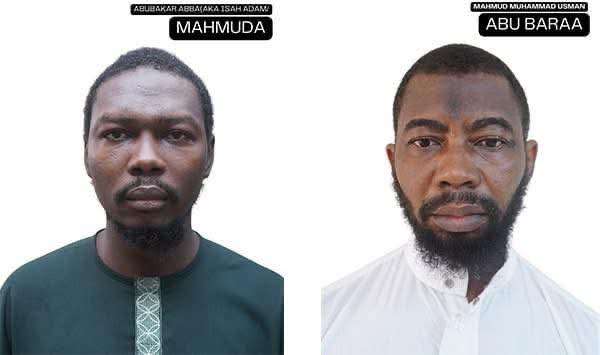Headlines
Sani, others commend NSA as security forces capture Al-Qaeda linked terror kingpins

A former Kaduna Central Senator, Shehu Sani, has described the arrest of two top leaders of Nigeria’s Al-Qaeda-linked terror group as a decisive step in the nation’s war against extremism.
In a post on his X handle at the weekend, Sani commended the National Security Adviser (NSA), Nuhu Ribadu, and security forces for the feat, stressing that it would send a strong message to extremist networks.
“The recent arrest of high-profile terrorist leaders in Northern Nigeria, as revealed by the NSA Ribadu, is a significant step in the fight against terrorism,” Sani wrote. “They kidnap, they kill, they are deranged, they are delusional in their dreams of a theocracy through bloodshed, and above all, they live by the sword. Their arrest sends a strong signal to violent extremist groups.”
Other commentators and security analysts also hailed the development as one of the most decisive blows against Jama’atu Ansarul Muslimina fi-Biladis Sudan, commonly known as Ansaru, since the group splintered from Boko Haram in 2012.
Announcing the breakthrough in Abuja, Ribadu disclosed that the suspects, Mahmud Muhammad Usman, also known as Abu Bara’a, and his deputy, Mahmud al-Nigeri, popularly called Mallam Mamuda, were apprehended between May and July 2025 in what he described as “a high-risk, intelligence-led counter-terrorism operation.”
“These two men have been on Nigeria’s most-wanted list for years. They jointly spearheaded multiple attacks on civilians, security forces, and critical infrastructure,” Ribadu said during a press briefing at the National Counter Terrorism Centre (NCTC).
Abu Bara’a, identified as the self-styled “Emir of Ansaru,” coordinated sleeper cells across northern Nigeria and masterminded several high-profile kidnappings and armed robberies to finance terrorism. His deputy, Mamuda, trained in Libya between 2013 and 2015 under foreign jihadist instructors from Egypt, Tunisia, and Algeria. He specialised in explosives and guerrilla warfare before returning to lead the so-called “Mahmudawa” cell based in and around Kainji National Park, spanning Niger, Kwara, and parts of Benin Republic.
The NSA linked the men directly to a string of violent operations, including the 2022 Kuje prison break in Abuja, the attack on a Niger uranium facility, the 2013 abduction of French engineer Francis Collomp, and the 2019 kidnapping of Magajin Garin Daura, Alhaji Musa Umar Uba. They were also implicated in the abduction of the Emir of Wawa in Niger State and several cross-border raids in the Sahel.
According to Ribadu, the arrests amounted to the “decapitation” of Ansaru’s leadership.
“The successful capture of Abu Bara’a and Mamuda marks the most decisive strike against Ansaru since its inception. It has effectively dismantled the group’s central command and paved the way for its annihilation,” he said.
Ribadu added that the two men, who were also wanted by the United States, the United Kingdom, and the United Nations, are in custody and undergoing interrogation.
Ansaru was founded in January 2012 as a breakaway faction from Boko Haram. Initially, it styled itself as a “more humane” group, but quickly established ties with Al-Qaeda in the Islamic Maghreb (AQIM). It announced its presence publicly in Kano, displaying the AQIM insignia and pledging allegiance to the global jihadist movement.
Over the years, Ansaru gained notoriety for kidnappings, assassinations, and attacks on Nigerian and foreign interests. It entrenched itself in forest enclaves, particularly around Kainji National Park, while maintaining sleeper cells in northern cities. The group also maintained operational ties with jihadist groups in Mali, Niger, and Burkina Faso.
By the mid-2010s, Ansaru had evolved into one of the deadliest transnational terror franchises in West Africa, financing its activities largely through ransom payments and cross-border smuggling.
Ribadu disclosed that security forces recovered caches of weapons, materials, and digital evidence during the operation. These, he said, are undergoing forensic analysis and are expected to yield actionable intelligence to disrupt remaining networks and track foreign collaborators.
“This is the beginning of the end of impunity for terrorist leaders,” the NSA declared. “We will continue to pursue extremists with precision, resolve, and unwavering determination.”
He attributed the success of the operation to seamless inter-agency collaboration, months of deep surveillance, and advanced technical tracking.
The Minister of Information and National Orientation, Mohammed Idris, also praised the security forces for the breakthrough. He assured citizens of President Bola Tinubu’s commitment to making security a top priority.
“Security is everybody’s business. We appeal to citizens to remain vigilant, provide timely information, and support the ongoing fight. The media must continue to treat terrorists as criminals rather than giving them platforms of notoriety,” Idris said.
While the arrests have been celebrated as a turning point, analysts warn that Ansaru still maintains splinter cells and that other extremist groups, including Boko Haram and the Islamic State West Africa Province (ISWAP), remain active.
Sani himself echoed this caution, noting that the lieutenants of Abu Bara’a and Mamuda may still be at large.
Nevertheless, for communities in Niger, Kwara, Kebbi, and Benin Republic’s Borgu region that have endured years of kidnappings and extortion under Ansaru’s Mahmuda cell, the development brings long-awaited relief.
As Ribadu put it, “This is not just a victory for our security forces. It is a message that those who terrorise innocent citizens will eventually be tracked, captured, and brought to justice.”






